Why anarchy? Because anything else would be uncivilized.”
This famous statement by Jeffrey Tucker inspired the Norwegian anarchists John Holmesland and Sondre Bjellås to create a genuinely civilized voluntaryist society without coercion and violence based on mutual voluntarism.
Anarchists in the “most perfect state” in the world
The first thing that has struck me for a long time is the strong anarchist movement in Norway – a state that almost all progressive politicians consider “perfect.” The most developed and advanced state in Scandinavia.
I first noticed this phenomenon at Anarchopulco (the big anarchist conference in Acapulco, Mexico), where the entire European delegation of anarchists was primarily from Norway and Sweden—countries that most EU politicians consider to be the epitome of a perfectly functioning state.
The Norwegian anarchists explained to me that Norway, despite publicly presenting itself as the most correct country, protecting all kinds of minorities, has problems that few people outside Norway suspect.
Like any other country, Norway suffers from corruption and incredible waste. Many Norwegians are not the least bit happy about Norwegian funds supporting the most bizarre projects in the world. At the moment, a case is flying through Norway about how the head of the Norwegian Communist Party, Bjornar Moxnes, stole USD 150 worth of sunglasses (Communists steal worldwide, including in Norway).
Last year, Norway introduced a wealth tax, which has seen most millionaire rich and productive people leave the country (especially Switzerland). Many of them took their “know-how” and their companies with them. Thanks to substantial progressive taxation (productive people are the most discriminated against), everyone in Norway is more or less “equally well off.” Most Norwegians are indebted (mortgage or loan for practically everything) and live on credit. Even though the Norwegian economy is built on oil and fishing, don’t expect petrol, diesel, or fish to be cheap here (due to high taxation, they are more expensive than in most EU countries). Because of this, alcohol is also costly here, and the most expensive beer in the world is made in this country.
Although Norway is a rich country, Norwegians themselves don’t feel rich.
Unlike most countries, however, it is quite a bit more liberal – homeschooling, home births and decriminalized all drugs are allowed in Norway.
Most Norwegians are conformists and follow everything the government tells them. That’s why, for example, there are more police officers in most countries than in Norway – because everyone follows the law. They regard not paying taxes as blasphemy and selfishness, so the community in Liberstad, which takes absolutely nothing from the state and builds everything itself, unfortunately, has a hard time of it.
Voluntaryism in Liberstad
Since anarchism in mainstream society, unfortunately, has a negative connotation, John and Sondre decided to base and promote the whole project on the ideas of voluntarism and not mention anarchy. Voluntaryism represents a philosophy of life or moral stance where we only accept mutually voluntary relationships (commercial or non-commercial). Consistent voluntaryists reject unilaterally enforced relationships (e.g., between the state and the citizen) and are, therefore, automatically anarchists (unless we consider a state based on voluntary support).
Voluntaryists believe that a society built on mutual voluntarism would not only be more prosperous, but more importantly more civilized, as it would not use means of aggression against innocent people (which all states in the world do, and most people unfortunately approve of).
Voluntaryists consider a voluntaryist society to be a “framework,” that is, a basis on which any other social arrangements, such as democracy, can be built – if all its members voluntarily decide to use their democratic voice to make decisions about the lives of others. Or socialism – if all its members voluntarily donate 90% of their income to a standard pot and then redistribute it to elected central planners.
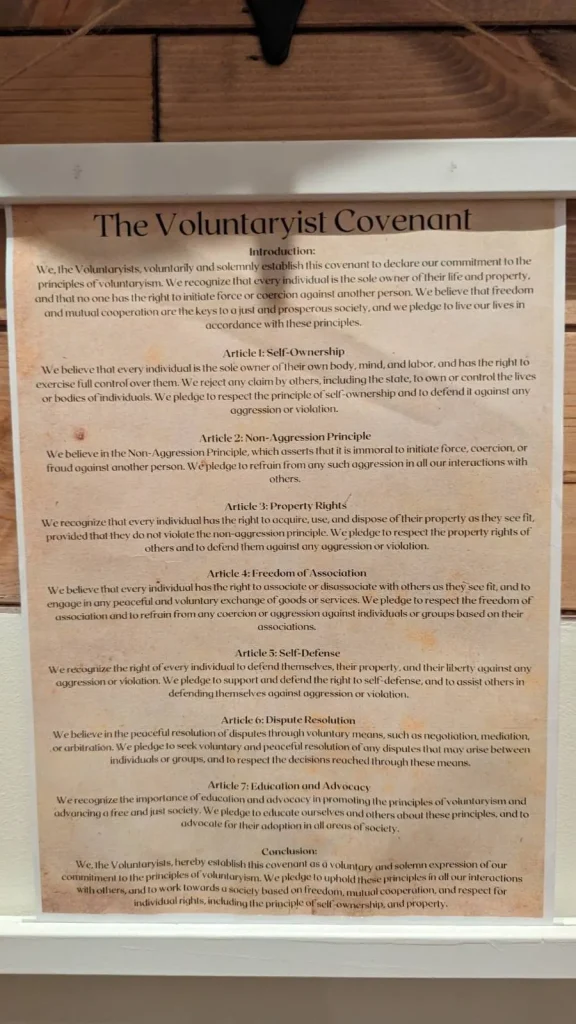
John and Sondre have no problem with Norway’s welfare state and huge taxes as long as its citizens are willing to support it voluntarily and use its services. On the other hand, they want nothing to do with it and are building an independent, self-sufficient, parallel society in the Norwegian mountains.
Independence and Autonomy for Liberstad
John and Sondre have bought more than 2 square kilometers of land that constitutes private property, even though it is Norwegian territory. It is managed by a non-profit private organization, which does not have to disclose anything (including its members or financial interactions between members) by law.
A couple of years ago, they launched a campaign to sell Libertad plots, and they all sold out (I visited a few of these plots yesterday, which my friends bought). I should point out that from the perspective of the Norwegian state, everything is owned by said private organization, and the state does not know who the actual owner of a given parcel is (from that perspective, you can buy property in Liberstad without the Norwegian state knowing). There are active social channels where John, Sondre, and their management actively communicate with the owners of these parcels about their future fate.
Respect for autonomy has been resolved through a registered religious organization – the Norwegian Voluntaryist Organisation, which has no God and has key ideological/spiritual principles that must be respected (their automated translation via Google is available here).
Norway profiles itself as a “great fighter” for the rights of minorities around the world (from Tibet to the Kurds),” so the voluntarists in Liberstad hope that their minority within Norway itself will also be respected.
So far, they have had no problem with the government in Oslo. This is because the latter realizes that the more they publicly comment on Liberstad or interfere in its activities, the more publicity they would give it, and the more Norwegians would learn about the ideas of voluntarism and the need for an autonomous society.
However, their real problems are with the local government, which constantly bullies them. For example, for posting (and flat out downloading) a drone-made video documenting how they built their private roads – which didn’t come without the explosions needed to modify the terrain. Without any permission, of course. Fortunately, they manage to ignore the local government politely, and since Norway is not a typical police state, they don’t anticipate a police raid on their private property.
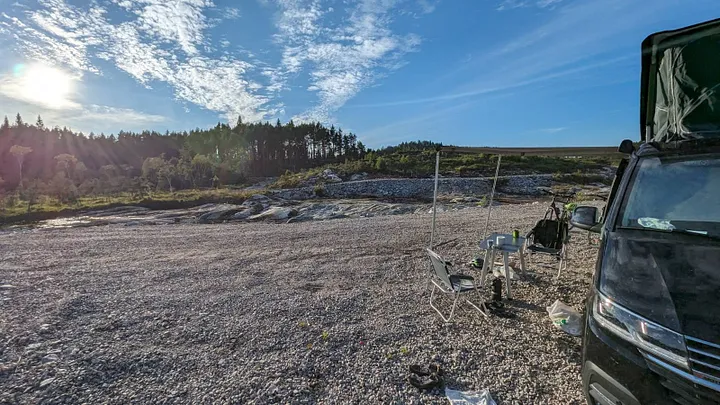
Don’t ask permission, don’t deal with details
Voluntaryists in Liberstad do not recognize the state’s authority, so it makes no sense to them to ask for permission from it.
This is where the Liberstad project is different from the Prospera project in Honduras, which has a contract with the state of Honduras to build a similar private city (which they are having a bit of a problem with at the moment because there has been a change of government in Honduras, and the new government refuses to respect what the old government signed before).
That’s why the founders of Liberstad decided not to ask the state for permission —they are building their properties without it (they are currently working on their brewery), building their roads, and homeschooling their children. They are just telling the state that they have built something new again.
“The important thing when building a private city is not to deal with all the details right from the start because your costs will rise disproportionately, and you’ll end up going nowhere,” says John Holmesland.
In Liberstad, people are very pragmatic and build just what they need. Similarly, they don’t invent rules or laws for situations that are unlikely to arise. Indeed, contemporary society is burdened by an overbureaucratized state apparatus that regulates and requires a rubber stamp for almost everything.
The current state of Liberstad
Liberstad’s permanent community may be small (under 15 people), but they have visitors worldwide and a potential location for thousands of new citizens. There are a few houses and caravans parked where Liberstad residents live. They have a large community center where there are lectures and evening events. Then there are the “barracks” for visitors (showers, toilets, washing machines, dryers). And lots of free parking space. A small island with a forest has earned the name “anarchist park.” Around it is a gravel road, which they plan to turn into asphalt.
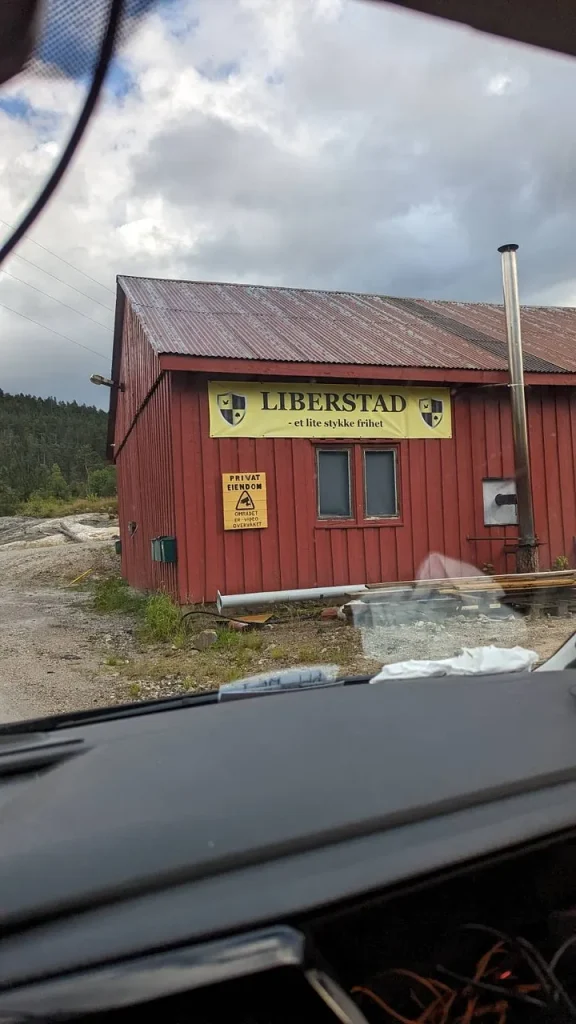
Both founders consider Liberstad their lifelong project, so even though they don’t have much funding, construction is still slowly progressing, and they are both fully committed to the project.
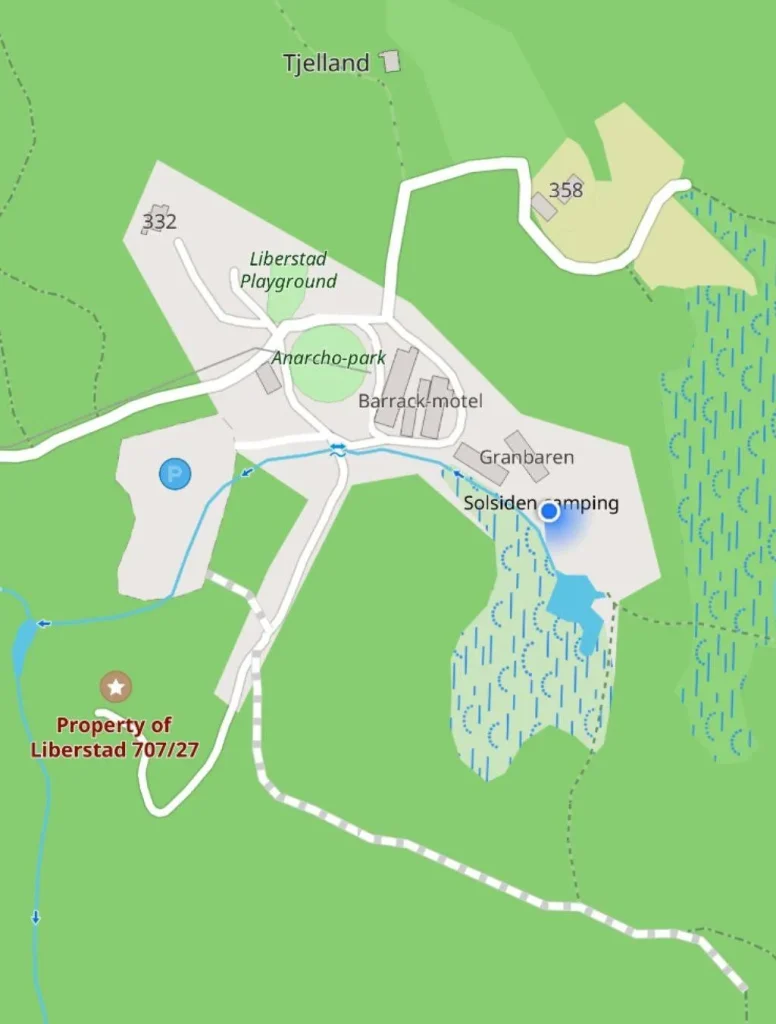
Liberstad’s parallel economy
Economic interactions within Liberstad are mutually voluntary and outside the control of the Norwegian state.
The people of Liberstad believe that by paying taxes, they support state violence against other people. Anyone in Liberstad can have multiple identities associated with a reputation with which to do business and contract with other Liberstad residents. They are experimenting with their centralized cryptocurrency, “City Coin (CITY),” which is a stablecoin pegged to the Norwegian krone (since they buy/sell most things in Norway). In the future, they are considering a decentralized version and smart contracts.
Conclusion
Of all the stateless mini-communities I’ve visited so far (Kalu Yala in Panama, El Cherán in Mexico, Mennonites in Paraguay, Christiania in Copenhagen), Liberstad comes closest to me ideologically as a voluntarist. I got on exceedingly well with its founders, John and Sondre, and we agreed on all the ethical and social principles (which I rarely do).
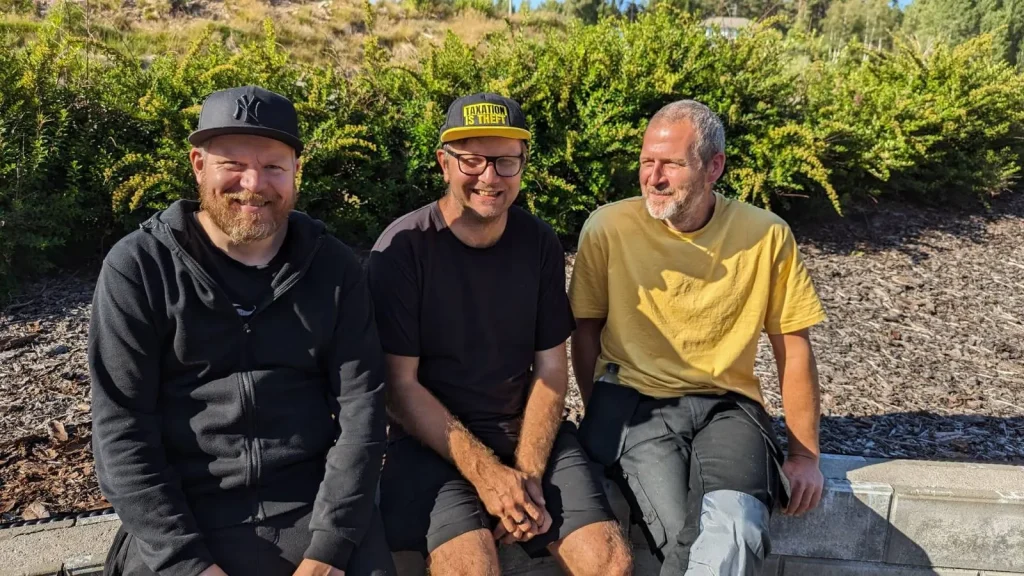
Liberstad has a new neighbor, a Dutch photographer and libertarian who has bought a much larger plot of land next door and plans to build a similar libertarian community there.
I hope and believe that this voluntaryist anomaly in Norway will continue to live its free life and attract freedom-minded people worldwide. I have all my fingers crossed for Liberstad and will visit again in a few years!
Liberstad links to its main website, Facebook, Twitter, and Instagram.
